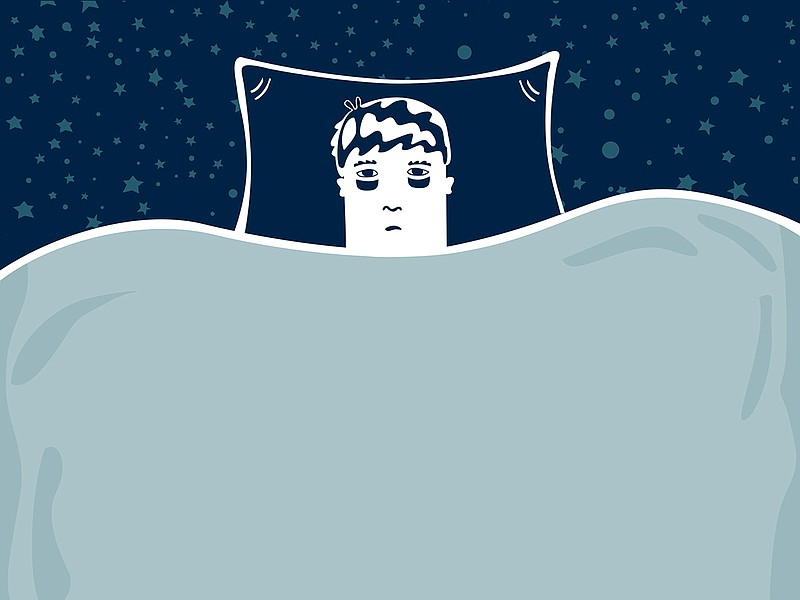Lots of people toss and turn struggling to get a good night's sleep, but sleep doesn't always come. The consequences are torture because it's still necessary to meet the next day's demands. Sleep deprivation can lead to performing at less than your best ability at a job or in school.
It slows response time and could lead to diabetes and obesity. Here are five tips from local doctors to increase chances for a restful sleep. They are simple behavior modifications that cost nothing and have no side effects.
1. Have a consistent sleep and wake schedule, says Dr. Vincent Viscomi, a pulmonologist and sleep medicine doctor affiliated with CHI Memorial Hospital and Parkridge Medical Center.
The most important factor for your internal clock is what time you get up in the morning. If you constantly wake at different times, it makes it harder for your body to know when to sleep, he says.
2. Avoid screens with blue light at least 25 minutes before bedtime, advises Dr. Gabe Tallent, a neurologist at Chattanooga Neurology Associates and a staffer at CHI Memorial Regional Sleep Center.
A lot of people use screens close to bedtime, including cellphones, iPads, computer screens or television. It turns out that the amount of light you get from that is enough to signal to the brain that it's daylight and time to be awake. So it can stimulate wakefulness.
3. Give yourself time in bed to get enough sleep. Tallent says people don't get near enough sleep. Before humans invented artificial light, the average person got nine to 10 hours of sleep per night. After that the number dropped to seven or eight hours. And now many of us don't get seven or eight. Somebody sleeping only five hours a night may have missed the equivalent of an entire night's sleep by the end of the week, says Tallent.
4. Limit the amount of fluid you drink three hours before bed so you don't have to get up to use the restroom in the middle of the night, says Viscomi. Some people sleep four or five hours before waking to use the restroom. And then they have a hard time getting back to sleep.
5. Take a warm bath or shower a half-hour before bed. You fall asleep a lot easier if your body temperature is falling rather than if your body temperature is rising. If you exercise, then your body temperature will rise and it's harder to sleep, says Viscomi. If you take a cold shower, your body temperature will rise, which makes for a harder time getting to sleep. You want your body temperature to be falling rather than rising when you're going to sleep, says Viscomi.
Contact Yolanda Putman at yputman@timesfreepress.com or 423-757-6431.

